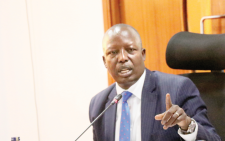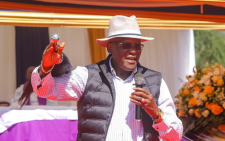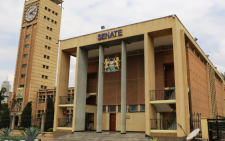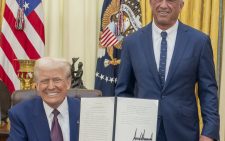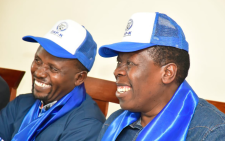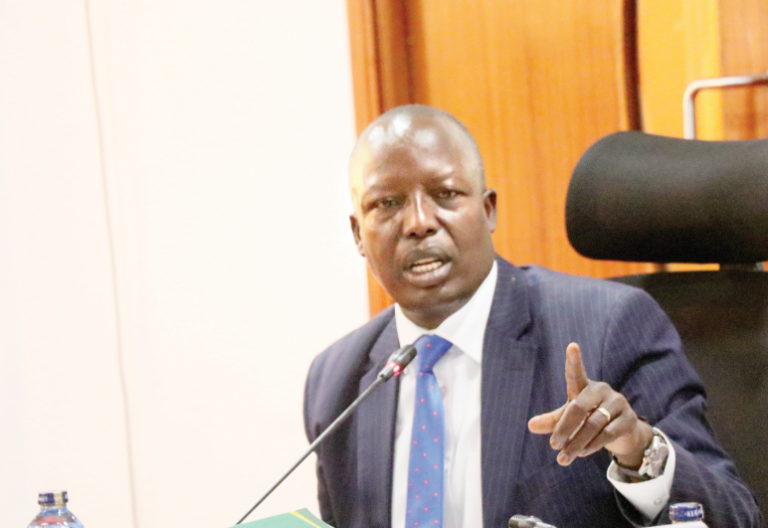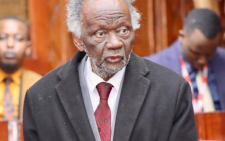Haji, Kinoti feud threatens to stall 50 major cases
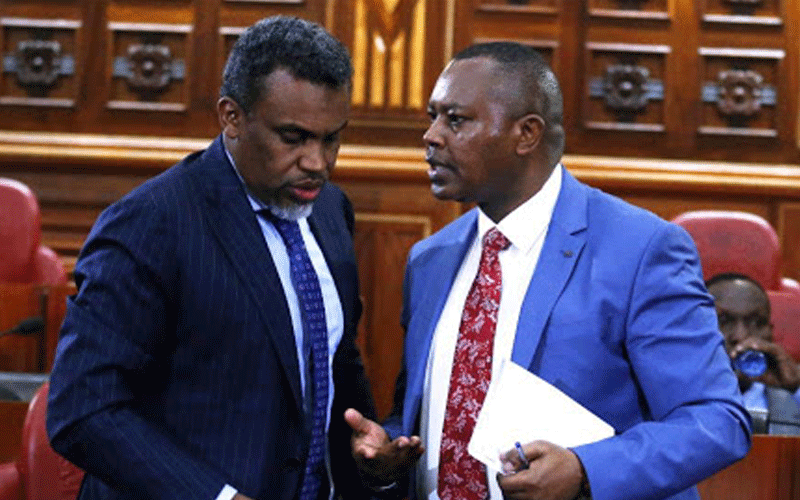
The fate of more than 50 high-profile court cases hangs in the balance as the feud between the Directorate of Criminal Investigations and the Office of the Directorate of Public Prosecutions (ODPP) escalates.
The quarrel that has roped in lawyers, has seen George Kinoti’s DCI accuse the chief prosecutor Noordin Haji of trying to “take over investigations and filing of cases in court through the back-door”.
DCI head of the Investigations Bureau John Kariuki has since written a memo to all his officers across the country directing them not to forward any file to ODPP.
“The DPP has immense powers, including terminating a case or amending the charges once the case has been presented in court.
But what we are telling him is that he lacks powers on any case before the file has been presented in court.
“What he is trying to do currently is circumventing the law to grant himself powers that he does not have,” Kariuki told the People Daily yesterday.
But Haji denied the accusations, only saying he was busy serving Kenyans and would not engage in sideshows.
“There are no differences at all. All that is a creation of the media, which I am not ready to engage in.
As far as I am concerned, I’m executing my duties as mandated by the Constitution and all other statutes.
The other information, get it from persons who told you, ” Haji said before hanging up on People Daily writer.
Sources at the DCI say the last high-profile case they prosecuted was against former Treasury Cabinet Secretary Henry Rotich, and since then “the DPP has rejected any file sent to him or simply ignored them”.
And as the feud between the two offices rages, the prosecution of more than 50 cases has stalled after the ODPP either overruled the DCI or failed to respond to requests from investigators for prosecution.
The cases include investigations into the ownership of Renton Company, the firm believed to be linked to Deputy President William Ruto and said to be behind the grabbing of 1, 600 acres of land meant for sewerage treatment in Ruai. The land was repossessed by the government last week.
Also pending is the file on renewed investigations into a case in which Ruto was accused of defrauding the Kenya Pipeline Company of Sh272 million in an illegal land transaction.
The DPP is also said to be holding onto a file in which the DCI had cracked an oil siphoning syndicate in Mlolongo by some KPC employees. Seven individuals, among them four KPC workers, were arrested and are out on bond since June last year.
Inflated bills
Other pending cases include the Maasai Mara University fraud probe; the Malindi Constituency Development Fund fraud probe, investigations into Malindi MP Aisha Jumwa over the killing of Ngumbao Jola during the Ganda ward by-election; Kenya Power Company’s inflated power bills, and investigations into the attempted murder of former Garissa Finance CEC Idris Mukhtar, who was shot in his car at a restaurant near the Kileleshwa mosque, Nairobi, in 2018.
Garissa Governor Ali Korane was arrested and questioned in connection with the attempted murder of the CEC and released.
Mukhtar’s father, Dr Aden Mukhtar and Salah Yakub Farah, Mukhtar’s former colleague, claimed the motive of the shooting must have been a case that was to be filed against the governor.
Other cases include the aborted prosecution of Kenya Ports Authority (KPA) former managing director Daniel Manduku and KRA Customs and Border Control Commissioner Kevin Safari; and immediate former managing director of National Water Harvesting and Storage Authority Geoffrey Sang.
Though the DPP declined to prefer charges recommended by the DCI on Manduku, Safari and Sang, their respective company boards have since sacked them, save for Manduku who resigned on March 27.
DPP powers
Police are also accusing Haji of having withdrawn the charge sheets of cases involving a Nyahururu magistrate accused of corruption in a case involving a suspect charged with dealing in contraband sugar.
At the centre of Kinoti-Haji row are the powers of the ODPP to terminate cases before they are presented in court, causing jitters among the police and some lawyers.
According to lawyer Albert Kuloba, the DPP lacks powers to take over police cases before they have been presented before either a magistrate or judge.
By so doing, he argued, the DPP is arrogating himself the powers of police officers as stipulated under the National Police Service Act.
He proposed law amendments to create a clear dichotomy on the role of the DPP when it comes to the prosecution of cases emanating from the Polise Service and the Ethics and Anti-Corruption Commission (EACC).
“Nowhere in the NPS Act has it been stipulated that it is mandatory before one is arraigned and charged in a court of law, the ODPP should be consulted or should sanction.
Theirs should strictly be an advisory role on either how to frame the charge, or whether particular offences enumerated on the charge sheet should be in light of the evidence gathered, sustain a conviction,” Kuloba says.
Lawyer Tom Okundi concurs with Kuloba, saying Haji has allegedly overstepped his mandate.
While Kinoti and his team accuse Haji of sabotaging their probe in high-profile cases, the latter has been accusing the police of undertaking shoddy investigations. The clash between the two first played out in open when DCI arrested Manduku and Safari.
Haji and Kinoti would later play down the row and blamed the media for blowing the matter out of proportion, but sources at the police headquarters indicate that the two are still at war over their mandates.
Law scholar Prof George Wajackoyah says in all jurisdictions the prosecution does not have any role to play before the charge sheet has been accepted by the magistrate as presented by investigators.
“His (DPP’s) powers only come to life once the magistrate opens a court file to start the criminal proceedings.
At that stage, the DPP can, with reasons given to the court refuse to prosecute, terminate or make amendments to the charge sheet,”says he.
